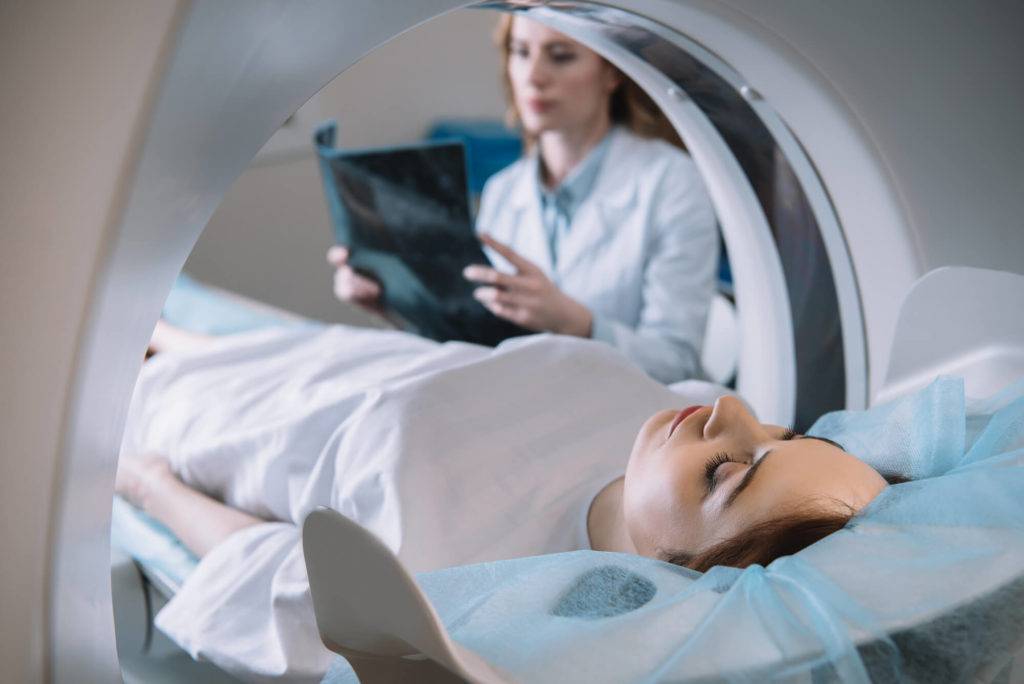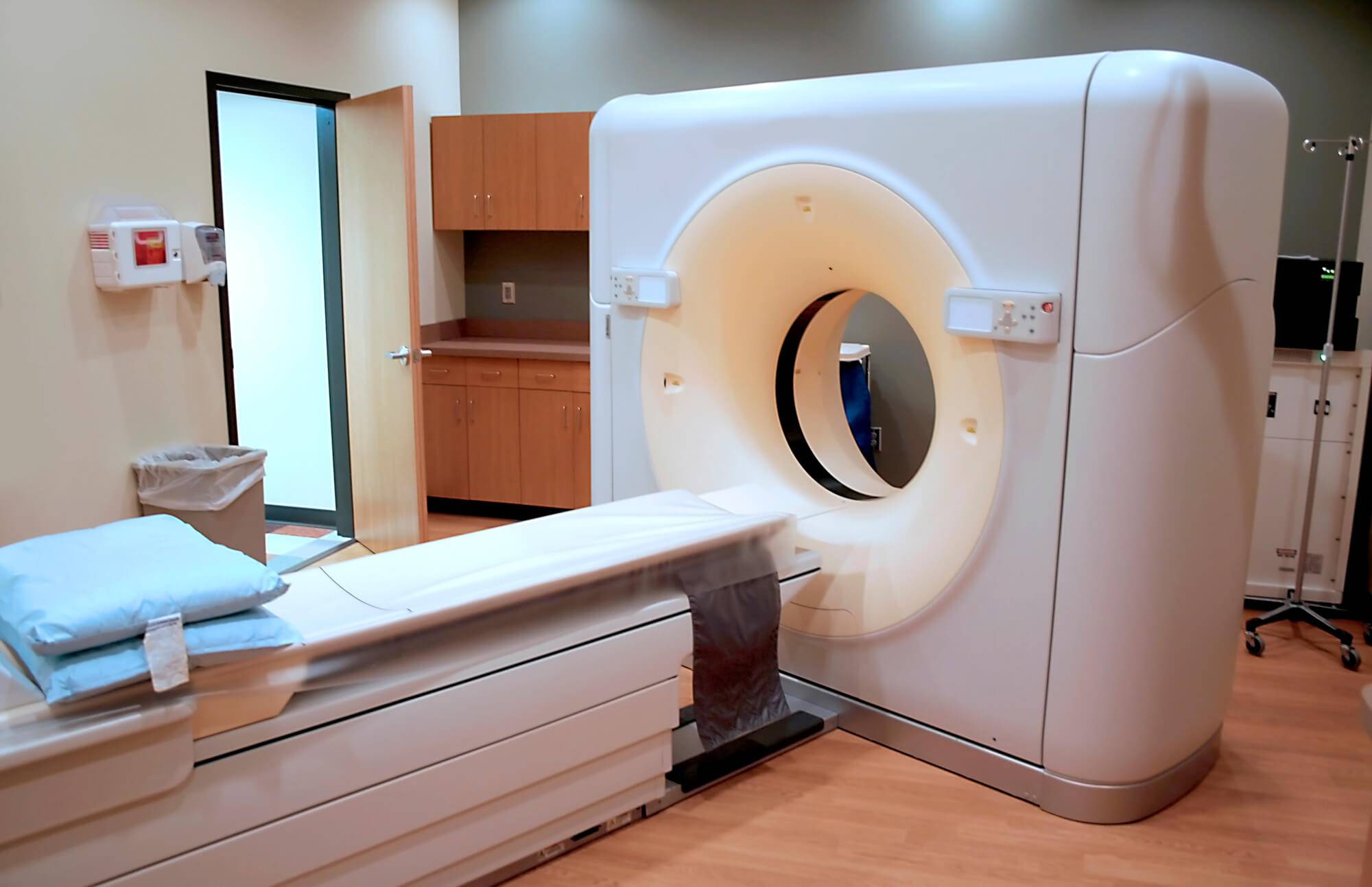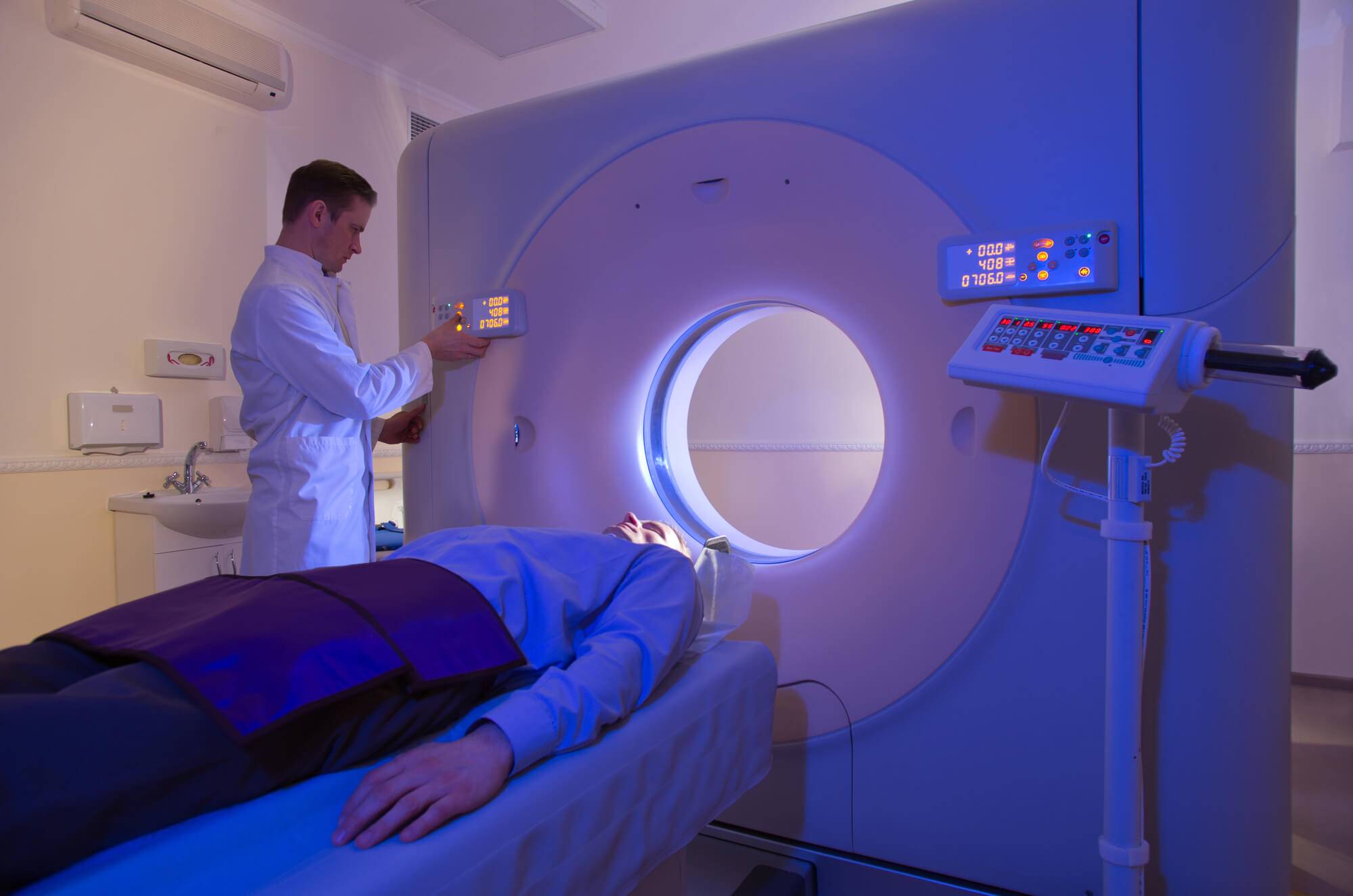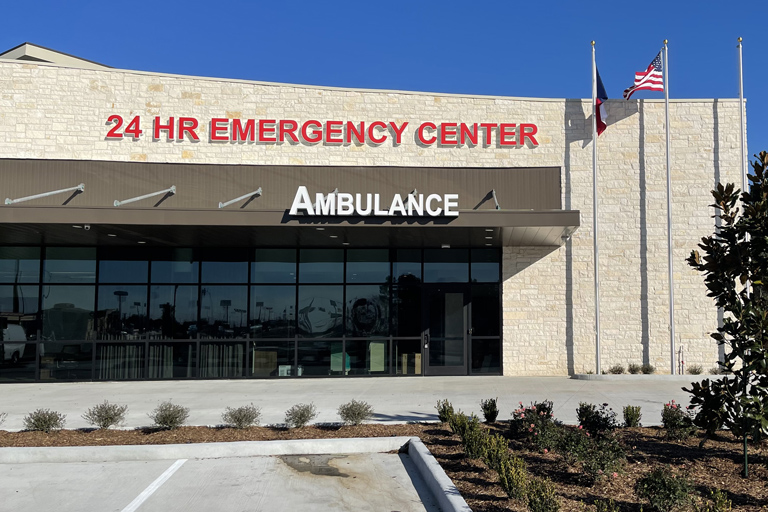A CT scan is a highly specialized X-ray imaging technique used to visualize bone, soft tissue, and blood vessels.
A CT scan produces a high-resolution, cross-sectional image that can be reformatted into 3-D or multiple flat planes. CT scans find injuries and diseases that previously were only detectable by surgery. CT machines are fast and accurate tools often used for examining a large section of the body like the pelvis, abdomen, or chest.
Read more about CT/CAT scans below.












